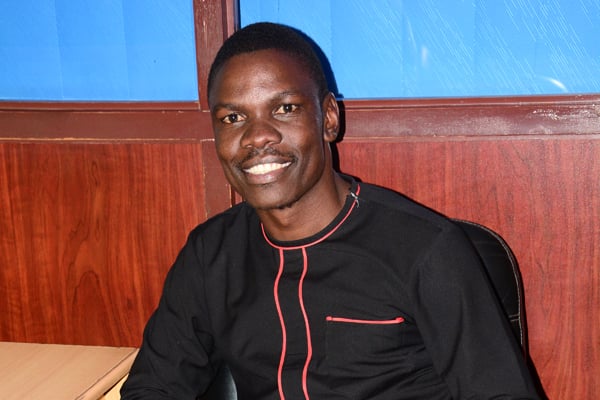
Ms Doreen Kajumba. PHOTO/COURTESY
|People & Power
Prime
Kajumba’s journey from accountant to Uber driver, then activist in Canada
What you need to know:
- Early in 2017, Doreen Kajumba left the country for Canada where she had recently returned from studies. She says she did not feel safe because of a divorce case and the resultant battle over property.
Today, Doreen Kajumba, 40, a mother of five, sits in a lecture room at George Brown College in Toronto, Canada. She is studying to become a community worker.
Although she might not have imagined this scenario seven years ago, the former accountant at the British High Commission had to make radical life decisions to try and take charge of her life.
She had at that point quit her job and taken a break from her marriage. Kajumba says she had developed low self-esteem because of the troubles back at home, and as a result suddenly tendered in her resignation at her workplace.
“I would go to work with a swollen face and I feared telling people what I was going through. Sometimes when we fought (with my husband), I asked for days off with no excuse and soon my performance started to decline,” she says, adding that this prompted her to resign to concentrate on businesses she had set up.
Troubled marriage
At the peak of her marital woes, Kajumba took a break from the marriage and went for further studies in Canada in 2015 where she spent a year on what she calls “reflection”.
“One morning we had an argument at home. Before I left for work at one of our workshops in Ntinda, he found me there and beat me mercilessly right in front of my workers. I reported the case at Ntinda Police Station and he was briefly detained,” she narrates, adding that it was her turning point.
After this incident, Kajumba says she started thinking about her future and marriage and decided to file for divorce. But even this wasn’t enough.
Early in 2017, Kajumba left the country for Canada where she had recently returned from studies. She says she did not feel safe anymore because of the ongoing divorce case and the resultant battle over property.
Reaching Canada
Having left behind what at one point was a stable life behind, Kajumba had to start life afresh. She had to look for a job to put food on her table.
Kajumba started working as a taxi driver on the internet transport company Uber. This, she says, enabled her to earn some money as she could make anywhere between CAD$250 (about Shs700,000) and CAD$300 (about Shs850, 000) a day.
“This job is mainly for immigrant workers in this country, so I was fine working. The only challenge I got was locating places. It was until I mastered how to use the GPS (Global Positioning System) that work became easy for me,” she says.
“I also faced problems being a woman,” she says. “Many people don’t expect this kind of job to be done by women, so my clients would come in and say ‘hi sir’. Whenever I replied, they apologised but I was ready for this, so it didn’t bother me.”

Tooro Pride Foundation members visit a community in Kampala during the lockdown. PHOTOS/ COURTESY
But overtime, Kajumba, now a permanent resident of Canada, gravitated towards helping those who had been in a similar position as her. The former victim of gender-based violence (GBV) wanted to help people like her.
She had been doing small-scale activism by sharing her stories and heading peer support groups of survivors.
“I became an Uber driver because it was the easiest job to do as a newcomer. It had been my dream to do GBV activism because I am a survivor and I wouldn’t want anyone to pass through what I went through,” she says.
“But because I needed to do this for my whole life, I needed to do it right. I learnt how things are done around here, researched and realised that I could do it well after registering as a non-profit or charity. I registered in 2020. I felt I needed knowledge, thus explaining my decision of going back to study to become a community worker.”
Entering activism
Kajumba registered Tooro’s Pride Foundation in 2020 as a non-profit organisation in Canada to help immigrants and refugees, some of whom are survivors of GBV.
Today the charity assists in immigrants and refugee support, development of safety plans for women and their children, supports individual counselling and handling referrals for children who have witnessed and experienced violence, among others.
Kajumba says with this she has some degree of satisfaction helping those who have been in abusive relationships.
“I know how it feels when you have kept quiet after being beaten. Sadly, such cases are many across the world,” she says.
Future plans
Last year, Kajumba decided to pick up her children from Uganda and is now focusing on an upcoming event for the foundation.
The international summit on gender-based violence 2022 will be held in Toronto and Ontario, Canada, between September 3 and 4.
“We shall showcase the voices of victims, have a series is sessions from renowned advocates and activists of women’s rights and it’s the first, but it will be an annual event.” She is the founder of the charity that now has roots in Uganda.
And because of what she calls injustice she went through in the hands of the Ugandan judicial system, Kajumba joined political activism as a mobiliser of National Unity Platform (NUP) party in the diaspora.
“I felt I had not been helped by the courts and I thought it is through a change of leadership in the country that there wouldn’t be bribery to deny people the justice that they deserve,” she says.
Education:
Kajumba went to Buhinga Primary School in Fort Portal for her primary education, Kyebambe Girls’ SS in Fort Portal for her Uganda Certificate of Education (UCE) before proceeding to Bishop Cypriano Kihangire SS Bbina for her Uganda Advanced Certification of Education (UACE).
She then went to Kyambogo University for a Bachelor’s of Science in Accounting and Finance, and now is at George Brown College in Toronto, Canada.





